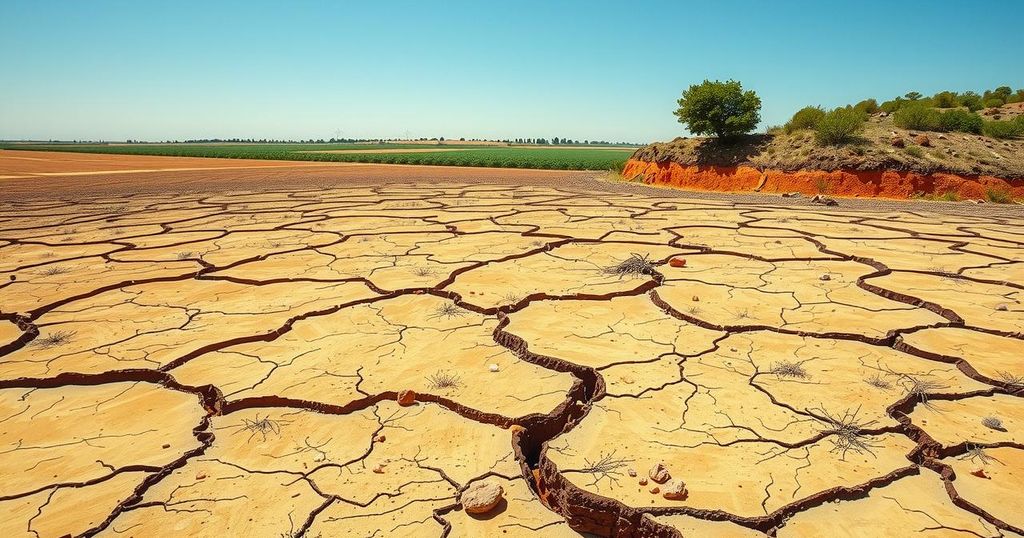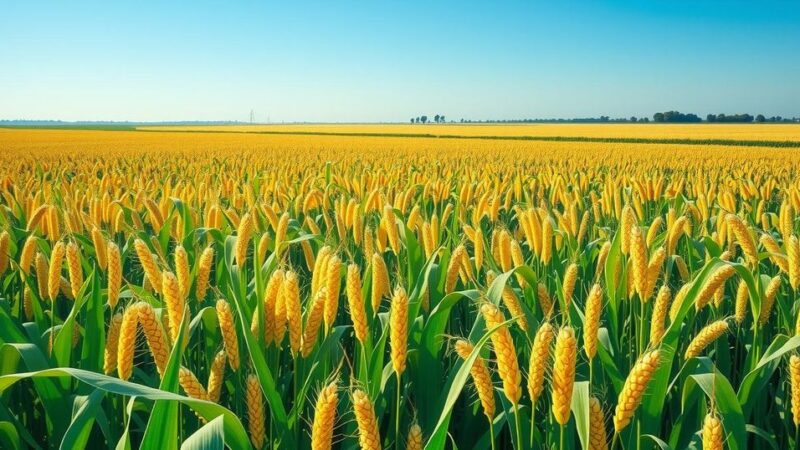The Oxfam report reveals that hunger in Eastern and Southern Africa has surged by nearly 80% over the past five years, driven by severe water crises impacting 116 million people. Climate change is worsening water scarcity, with extreme weather events threatening food security. The report highlights the urgent need for investment in water infrastructure to combat these intertwined issues, particularly for vulnerable communities, especially women and girls.
The alarming increase in hunger levels within Eastern and Southern Africa has been exacerbated by a relentless water crisis, impacting nearly 116 million people in the region who lack access to safe drinking water. According to a recent report from Oxfam, these issues have surged over the past five years, revealing that approximately 40 percent of the population is affected by the depletion of crucial water sources due to climate change-induced events like droughts and floods.
The report, titled “Water-Driven Hunger: How the Climate Crisis Fuels Africa’s Food Emergency,” highlights the urgent situation in eight countries including Ethiopia, Kenya, and Somalia. It indicates that the number of individuals facing extreme hunger has escalated by nearly 80 percent since 2019, soaring to over 55 million people, primarily due to ongoing severe weather patterns that threaten agricultural productivity and water availability.
Moreover, the report warns of the adverse effects of the La Niña weather phenomenon, projected to exacerbate flooding in Southern Africa and severe drought in East Africa, potentially worsening the food crisis. This follows a global trend indicating that flash floods have increased in frequency and drought conditions have extended in duration, severely impacting vulnerable communities in these regions.
Fundamentally, systemic issues such as poverty, inequality, and inadequate investment in water infrastructure have left many communities unprepared to handle this climate-induced crisis. Currently, African governments are failing to meet the annual investment target of US$50 billion that is crucial for achieving water security by 2030, with current investments falling significantly short.
Oxfam’s Africa Director, Fati N’Zi-Hassane, articulated the human impact of this crisis by stating that “the climate crisis is not a mere statistic—it has a human face.” The findings also reveal striking disparities, wherein women and girls disproportionately bear the burden of the crisis, often walking long distances to obtain water, which limits their opportunities for education and economic improvement.
For each of the eight countries studied, small-scale farmers have been found to rely heavily on rainwater for both drinking and agricultural activities. For instance, in Ethiopia, there has been a staggering 175 percent rise in food insecurity over the past five years, affecting 22 million people. Similarly, in Kenya, nearly 136,000 square kilometers of land have transitioned to drier conditions, severely impacting crop yields.
In conclusion, the report underscores the urgent need for immediate action to address the intertwined challenges of water scarcity and hunger in Africa. It calls for increased investment in water infrastructure and social protections to safeguard vulnerable communities against the ongoing effects of climate change, emphasizing that addressing these challenges is essential for creating equitable and sustainable solutions.
In summary, the Oxfam report elucidates the escalating hunger crisis in Eastern and Southern Africa, driven largely by severe water scarcity exacerbated by climate change. The surge in affected populations, coupled with the detrimental impacts of extreme weather events, highlights the urgent need for substantial investment in water security and infrastructure. Additionally, the report underscores the social inequities that place the most vulnerable, particularly women and girls, at further risk. Urgent action is necessary to alleviate these intertwined crises and promote resilience within affected communities.
Original Source: reliefweb.int






